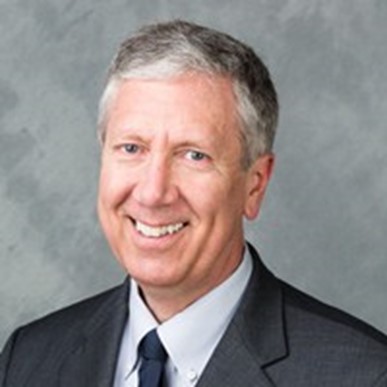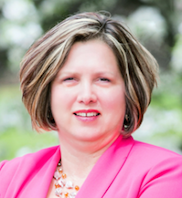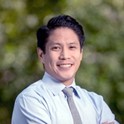Palliative Care Knowledge Self-Assessment
Palliative care is the holistic approach to provide relief to patients suffering from life threatening diseases and their families throughout the disease. This is mainly through the prevention and relief of suffering by means of early identification, comprehensive assessment and management of physical, psychosocial and spiritual problems. With the rise of elderly population in the world patients needing palliative care will also increase. Family physicians, who are closest to the community and have longstanding relationships with their patients, have a major role to play in providing palliative care. Their broad knowledge, ability to communicate and coordinate with other health care resources place them in an ideal position to address complex issues faced by patients. Keeping up to date with knowledge, (including regulatory and legal issues), acquiring counseling skills, lack of support from team, and time constraints are some of the challenges faced by family physicians in providing palliative care and addressed in this virtual KSA.
This KSA will take place from 7:00 - 9:00 pm over three Wednesdays as follows:
Wednesday, December 2, 2020
Communication Strategies, Shared Decision Making, Ethics, Legal, Regulatory, Cultural and Psychosocial aspects of Palliative Care
Faculty: Jim Deming, MD
Wednesday, December 9, 2020
Principles of Pain Management in Palliative Care and Recognizing and Managing Palliative Care Urgencies and Emergencies
Faculty: Dave Tran, MD
Wednesday, December 16, 2020
Managing Common Palliative Care Symptoms and Providing Palliative Care in Special Populations
Faculty: Cheri Olson, MD
Fees
| Member Type | Fee |
| AFP Member | $100 |
| Non-Member | $175 |
PARTICIPATION AND CREDIT
Fulfill the 60-question Knowledge Self-Assessment (KSA) with this three-session series that meets your ABFM’s Family Medicine Certification Self-Assessment Activities requirement. Also, you will receive information on furthering your education by signing up for a ABFM Performance Improvement (PI) module on this topic.
The registration fees for these workshops do not include nor can they be applied to your ABFM MC-FP fees. To receive credit, participants must be currently eligible and enrolled in the ABFM MC-FP process, must pay the ABFM MC-FP fees, and must have attended and fully participated in the educational discussion for the entire workshop.
Learners must register to participate in and receive credit for this live virtual educational activity. Read the target audience, learning objectives, and author disclosures. Learners are expected to fully participate, with their cameras on, to ensure full engagement with the sessions. Instructions on this process will be detailed prior to the start of the program with plenty of time for participants to ask questions and test the system. Learners are expected to actively participate in all three live virtual sessions, answer the 60 questions and complete the evaluation. For information on applicability and acceptance of continuing education credit for this activity, please consult your professional licensing board.
CULTURAL/LINGUISTIC COMPETENCY
CAFP policy and California state law requires that each learning activity including a patient care element address the topic of cultural and linguistic competency. This activity meets this requirement.
Equitable and Inclusive Curriculum
CAFP requests all faculty to present content that uses inclusive language to guide care for all our diverse patients.
PRIVACY POLICY
The California Academy of Family Physicians (CAFP) is committed to protecting the privacy of its members and customers. CAFP maintains safeguards to store and secure information it has about members and customers. The safeguards may be physical, electronic or procedural. For more information, go to https://www.familydocs.org/privacy-policy/
QUESTIONS
For questions regarding the content of this activity or for technical assistance, contact [email protected].
The CAFP has made all reasonable efforts to ensure that information contained herein is accurate in accordance with the latest available scientific knowledge at the time of accreditation of this continuing education program. Information regarding drugs (e.g., their administration, dosages, contraindications, adverse reactions, interactions, special warnings, and precautions) and drug delivery systems is subject to change, however, and the learner is advised to check the manufacturer's package insert for information concerning recommended dosage and potential problems or cautions prior to dispensing or administering the drug or using the drug delivery systems.
Approval of credit for this continuing education program does not imply endorsement by CAFP of any product or manufacturer identified.
Any medications or treatment methods suggested in this CME activity should not be used by the practitioner without evaluation of their patient's condition(s) and possible contraindication(s) or danger(s) of use of any specific medication.
UNLABELED USE DISCLOSURE
This activity will not include discussions of products or devices that are not currently approved for use by the Food and Drug Administration (FDA), and the curriculum clearly indicates this fact.
COPYRIGHT
© 2020 California Academy of Family Physicians. All rights reserved. No part of this activity may be used or reproduced in any manner whatsoever without written permission except in the case of brief quotations embedded in articles or reviews.
Support
The California Academy of Family Physicians has received an unrestricted educational grant from the American Board of Family Medicine (ABFM) in support of this activity.
Target Audience
This activity is designed for family medicine physicians, and other primary care team members.
Learning Objectives
By the end of this session, participants should be able to demonstrate knowledge in:
- General principles of pain management
- Managing common palliative care symptoms
- Legal, regulatory, cultural, and psychosocial aspects of palliative care
- Palliative care in special populations
- Recognizing and managing palliative care emergencies
- Communication strategies, shared decision making, and ethical considerations in palliative care
- Describe the separate quality improvement module available
|
|
|
Family Physician James “Jim” Deming, MD graduated from Lawrence University in Appleton, Wisconsin in 1978, the University of Wisconsin School of Medicine and Public Health in Madison, Wisconsin in 1982 and Family Medicine Residency in Cedar Rapids, Iowa in 1985. He practiced family medicine for 27 years in Tomah, Wisconsin and was Family Physician of the Year for Wisconsin in 2007. Dr. Deming has been a hospice medical director since 1998, became certified in Hospice and Palliative Care in 2008 and moved to Eau Claire, Wisconsin for full-time palliative care and hospice in 2013. His passion is to share what he has learned as a palliative care physician with other family doctors, particularly strategies for successful communication. He considers his greatest achievement to be having a wife and four adult children who still speak to him. His other interests include photography, kayaking, and Balint groups | Associate Professor Dr. Cheri Olson is a family physician in La Crosse, WI. She is Medical Director Interstate Postgraduate Medical Association and Associate Professor at La Crosse‐Mayo Family Medicine Residency where she has nurtured over 100 family medicine residents into practicing family physicians. She recently retired from a full‐range family medicine practice including obstetrics, inpatient medicine, procedures, and research. Dr. Olson has become increasingly involved in Quality Improvement at Mayo Clinic in Rochester and Mayo Clinic Health System‐Franciscan La Crosse. Olson is leading quality improvement education at MCHS‐Franciscan La Crosse and is working with resident and leading teams in clinic quality improvement initiatives. | Family Physician Dr. Tran completed his undergraduate education at UC Berkeley and completed his medical education at the UC Irvine School of Medicine. He pursued residency in Family Medicine at the Long Beach Memorial Family Medicine Residency Program, where he completed the program under the Global Health Area of Concentration. In 2016, he was the recipient of the American Academy of Family Physicians Award for Excellence in Graduate Medical Education. He then completed his fellowship training with UC San Diego/Scripps Health Hospice and Palliative Medicine. Dr. Tran's practice focuses on care for underserved populations, culturally diverse patients, global health, mentoring and outreach. |
DISCLOSUREDr. James Deming declares that in the past 12 months neither he nor his partner/spouse have a financial interest/arrangement or affiliation with one or more organizations that could be perceived as a real or apparent conflict of interest in the context of the subject of this continuing education activity. | DISCLOSUREDr. Cheri Olson declares that in the past 12 months neither she nor her partner/spouse have a financial interest/arrangement or affiliation with one or more organizations that could be perceived as a real or apparent conflict of interest in the context of the subject of this continuing education activity. | DISCLOSUREDr. David Tran declares that in the past 12 months neither he nor his partner/spouse have a financial interest/arrangement or affiliation with one or more organizations that could be perceived as a real or apparent conflict of interest in the context of the subject of this continuing education activity. |
DISCLOSURE
The California Academy of Family Physicians' (CAFP) Committee on Continuing Professional Development is responsible for identification, management and resolution of conflict for any individual who may have the potential to influence content, who have served as faculty, or who may produce CME/CPD content for the CAFP. Management/Resolution may include learner notification, peer review of content before presentation, requirement of EB-CME, changing topics, or even dismissing a potential planning or faculty member.
CONFLICT OF INTEREST STATEMENTS
It is the policy of the CAFP to ensure independence, balance, objectivity, scientific rigor, and integrity in all their continuing education activities. All individuals with potential conflicts are contacted by CAFP staff or CCPD members, and issues of conflict have been discussed, managed, and resolved.
8.00 AAFP PRESCRIBED
This live activity series, Palliative Care: ABFM Knowledge Self-Assessment (KSA) Group Learning Workshop, has been reviewed and is acceptable for up to 8 Prescribed credits by the American Academy of Family Physicians.
AAFP Prescribed credit is accepted by the American Medical Association as equivalent to AMA PRA Category 1 credits™ toward the AMA Physician’s Recognition Award. When applying for the AMA PRA, Prescribed credit earned must be reported as Prescribed, not as Category 1.
Physicians should claim only the credit commensurate with the extent of their participation in the activity.
AVAILABLE CREDIT
- 8.00 AAFP Prescribed
Available Credit
- 8.00 AAFP Prescribed

 Facebook
Facebook X
X LinkedIn
LinkedIn Forward
Forward

